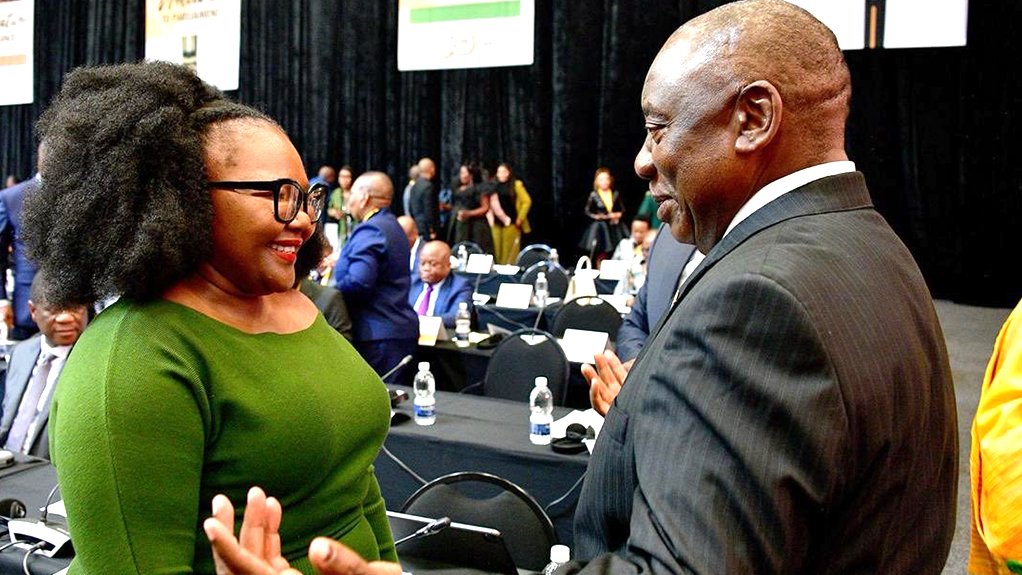Basic Education Minister Siviwe Gwarube has written to President Cyril Ramaphosa notifying him that she will not be attending the signing of the Basic Education Laws Amendment (BELA) Bill, until concerns regarding the Bill are rectified.
Rampahosa is due to sign the Bill into law on Friday, during a ceremony to be held at the Union Buildings in Pretoria.
The Bill is subject to much public opposition owing to its removal of powers from parents and giving some powers to the State.
The Democratic Alliance (DA) has said that signing the Bill would jeopardise the Government of National Unity (GNU).
Gwarube said she had always been and remained opposed to the Bill in its current form. She wants Ramaphosa to refer the Bill back to Parliament for reconsideration in terms of Section 79 of the Constitution, citing concerns with the constitutionality of provisions on the implementation of admissions and language policies determined by the governing bodies of public schools.
She also highlighted the need for a phased approach to implementing Grade R as a compulsory and permanent feature of the basic education system based on the capacity of provincial education departments, public schools, and early childhood development centres to offer access to Grade R to all learners who require it.
Gwarube said Parliament must be allowed to fix what she said was currently wrong with the Bill so that learners across the country could access and receive quality education.
“In the context of a GNU, it is essential that compromises reflect the people's will. That is why I have been engaged with the President on this matter. We must consider the objections to the Bill and ensure that it is rectified to avoid protracted and costly legal action,” she explained.
Meanwhile, the DA has urged Ramaphosa to reconsider his intention to sign the Bill, stating that the party will continue to fight the Bill not only in the courts, but also in its execution and implementation.
DA national spokesperson Willie Aucamp said the party was committed to defending the constitutional right to mother-tongue education.
“We will continue to strenuously oppose any attempt by Education Department officials to over-ride school governing bodies' right to formulate language and admissions policies. These clauses in the Bill only serve to undermine well-functioning schools and will do nothing to improve the quality of most under-performing schools,” Aucamp said.
He added that the department's priority should be fixing the “many dysfunctional” schools in the system, rather than “penalising” high-performing schools.
“Apart from serious constitutional issues, Ramaphosa’s unilateral decision to press ahead with the signing of this Bill negates the principles of consensus-seeking and good faith upon which the GNU was intended to function,” he added.
Aucamp noted that the Statement of Intent, signed by the African National Congress and the DA in June, underscored this foundational approach, which he said was now simply being brushed aside.
He said signing of the Bill was a “dangerous step” that boded ill for the future of the GNU and would inevitably drive South Africans further apart.
“The President’s refusal to engage in meaningful compromise with his GNU partners reflects a squandered opportunity to unite the nation. Instead, he has chosen division - while doing nothing to address the educational crisis in South Africa,” he said.
He further explained that this approach eroded public confidence in the future of the GNU and the country and undermined the President's credibility.
EMAIL THIS ARTICLE SAVE THIS ARTICLE ARTICLE ENQUIRY
To subscribe email subscriptions@creamermedia.co.za or click here
To advertise email advertising@creamermedia.co.za or click here











